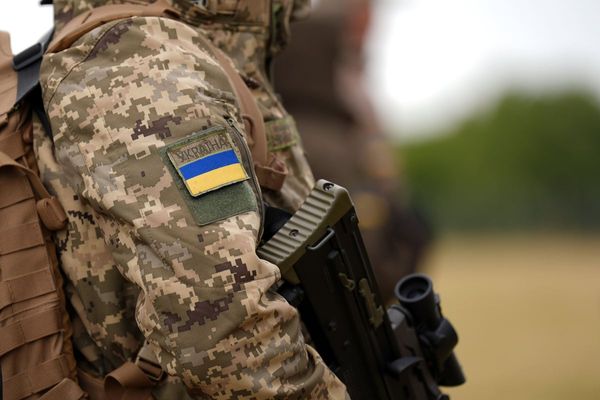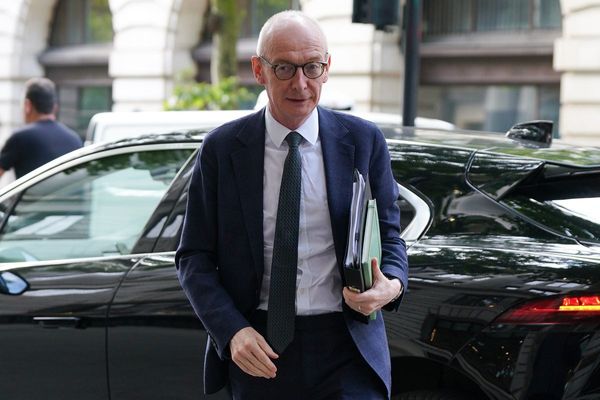
President-elect Joe Biden is staffing up his National Security Council and State Department with a slate of Obama-era officials, reflecting the incoming administration’s plans to rely on seasoned diplomats and subject matter experts.
The appointments reflect the Biden administration’s priorities on issues such as reviving the moribund Iran deal, global health issues in the wake of the pandemic, climate change, and tackling long-standing challenges related to Russia.
Senior appointments at the State Department will require Senate confirmation, which should prove much easier after two Democratic candidates won Senate runoff races in Georgia on Tuesday, giving Biden’s party the slimmest of margins in the upper chamber. On Friday, Biden also unveiled a slate of 21 picks to lead the National Security Council, including regional directors, the largest batch of national security picks yet for the incoming administration. They don’t require Senate confirmation.
Here’s a look at some of the biggest names on the new national security team (many of whom, including Amanda Sloat and Andrea Kendall-Taylor, have written op-eds for Foreign Policy).
Wendy Sherman, deputy secretary of state
Transition officials confirmed that Sherman, formerly the Obama administration’s top negotiator on the Iran deal, will be the No. 2 diplomat if she gets through the Senate. Sherman is an experienced State Department hand who also brings long-standing experience on North Korea to the table, traveling to Pyongyang with the first female secretary of state, Madeleine Albright, during the Clinton administration. She questioned President Donald Trump’s strategy on both portfolios, seeing the White House as overly optimistic about nuclear talks with Kim Jong Un and asking the New Yorker how “in God’s name can any verification or monitoring of North Korea be infallible?” Sherman headed nuclear talks with the North until 2001, when Pyongyang then promised not to make missiles that could strike the United States.
But like other nominees with long track records, Sherman is likely to face pushback for her long history in government, particularly on the Obama administration’s decision to bypass Congress on the 2015 Iran nuclear deal and do the pact by executive agreement, not as a Senate-ratified treaty.
Victoria Nuland, undersecretary of state for political affairs
Nuland, a former career foreign service officer who served as top Europe envoy during the Obama administration as well as State Department spokesperson, would become State’s third-ranking official. As with Sherman’s nomination, the news was first reported by Politico and the New York Times, though no formal announcements have been made.
Nuland played a key role in crafting the U.S. response to the 2013-2014 Ukrainian revolution and Russia’s annexation and invasion of parts of the country. Nuland came to public prominence in 2014 when Russian intelligence recorded and released her phone call with then-U.S. Ambassador to Ukraine Geoffrey Pyatt in which she said “fuck the EU,” sparking tensions with European allies as the United States scrambled to respond to the escalating crisis in Ukraine. Nuland is a prominent Russia hawk and signals that the Biden administration won’t stray from the yearslong U.S. and European campaign of isolating Moscow diplomatically and through sanctions.
Amanda Sloat, NSC senior director for Europe
Sloat, a Brookings Institution scholar and former diplomat for Europe under Barack Obama, is an expert on trans-Atlantic affairs as well as thorny issues such as Brexit and U.S.-Turkey relations. Along with several other names, her appointment could signal that the Biden administration won’t relent on criticisms of the Turkish government for its actions in Syria and erosion of democratic institutions.
Andrea Kendall-Taylor, NSC senior director for Russia and Central Asia
Kendall-Taylor, a former senior U.S. intelligence officer, is an expert on European affairs, autocracy, and particularly Russia’s disinformation machine, which the Kremlin has wielded with significant effect particularly in the past four years. During the Trump administration, responsibility for Europe and Eurasia, including Russia, was rolled into one position held by the renowned Russia expert Fiona Hill, among others. One Biden campaign advisor, speaking on condition of anonymity, said the split reflects the special emphasis the Biden administration will place on Russia separate from wider European issues.
Jon Finer, deputy national security advisor
Finer, a former journalist and Obama appointee, is set to take up the No. 2 position at the NSC. He was a speechwriter for Biden as vice president and senior advisor to then-Deputy National Security Advisor Antony Blinken, Biden’s pick for secretary of state. Finer also served as chief of staff and director of policy planning at the State Department during Obama’s second term. Finer is one of dozens of Obama-era officials who swiftly condemned Trump’s withdrawal from the Paris climate agreement, saying at the time that his action threatened “American security and prosperity.”
Brett McGurk, NSC coordinator for the Middle East and North Africa
McGurk, who served as Trump’s special envoy to the anti-Islamic State coalition, was tapped to lead White House policy on the Middle East and North Africa. McGurk, who was credited with helping to build the counter-Islamic State coalition that eventually topped out at more than 90 nations, resigned in protest after Trump announced a full withdrawal of U.S. troops from Syria in December 2018, which was later reversed. The appointment suggests a harder Biden administration policy on Turkey, as McGurk championed the Kurdish-led Syrian Democratic Forces and has been sharply critical of Turkish President Recep Tayyip Erdogan’s policy in Syria, which he has described as a plan to extend the nation’s border. McGurk will have served in each of the last four presidential administrations.
Sasha Baker, NSC senior director for strategic planning
Baker was a former national security advisor to Democratic Sen. Elizabeth Warren and is one of the most prominent progressive voices in Democratic foreign-policy circles. Baker played a key role in crafting Warren’s foreign-policy platform during her failed 2020 presidential bid in the Democratic primaries. Warren has been a leading critic of the U.S. relationship with Saudi Arabia, including U.S. military support for the Saudi coalition’s war in Yemen.
Elizabeth Cameron, NSC senior director for global health security and biodefense
Cameron, who has a Ph.D. in biology, served in the State and Defense departments before helping to stand up the NSC Directorate for Global Health Security and Biodefense during the Obama administration. The Trump administration folded the directorate into other NSC departments as part of an effort to cut down the size of the NSC and streamline its structure. Her nomination is a sign of a return to emphasizing pandemic preparedness and response.
Juan Gonzalez, NSC senior director for Western Hemisphere
Gonzalez, one of Biden’s top Latin America advisors during his presidential campaign, previously served as deputy assistant secretary of state for Western Hemisphere affairs during the Obama administration. Gonzalez will inherit a confused Latin America policy, with the Trump administration’s efforts to oust Venezuelan leader Nicolás Maduro grinding into limbo and the country’s economic and political collapse fueling a massive humanitarian and refugee crisis. Another challenge Gonzalez will face is how to manage the United States’ fraught relations with Cuba. The president-elect reportedly plans to reverse Trump-era sanctions and travel restrictions and work to normalize ties with the Cuban government but will likely face significant pushback from congressional Republicans on the issue.
Sumona Guha, NSC director for South Asia
A former foreign service officer who was drawn into Jake Sullivan’s policy planning staff at the State Department during the Obama administration, Guha worked on Afghanistan and Pakistan issues during a tumultuous time that saw relations deeply frayed between Washington and Islamabad. With the Trump administration facing a self-imposed deadline to cut the number of U.S. troops in Afghanistan by half before Inauguration Day, Guha will help oversee the start of a new relationship between Washington and Kabul—especially if peace talks with the Taliban continue—as the Biden administration hopes to finally pivot American focus to countering China. Also on tap is the continued revitalization of the so-called “Quad” of U.S. partners that includes Japan, Australia, and India.
CIA director?
One notable absence from Biden’s recent spate of appointments is his nominee for CIA director, which Democratic foreign-policy experts and transition officials said is due to pushback from the progressive flank of the Democratic Party on some of his potential nominees.
The role of CIA director has not always been a cabinet-level position, and it’s unclear whether Biden’s pick to lead the agency will be part of his cabinet. The Biden transition team did not respond to a request for comment.
While the Democrats’ victory in the Senate may have given Biden more room to maneuver with other appointees, a Democratic Senate could actually narrow his options for CIA director, as candidates’ comments and relationship with controversial CIA programs such as torture and drone strikes will be subject to intense scrutiny by the party’s progressive flank. “This maybe limits, or eliminates, some people who were maybe under consideration, because it makes it harder to get them through,” said Larry Pfeiffer, who served as chief of staff to former CIA Director Michael Hayden.
Michael Morell, earlier seen as a front-runner for the job, was jostled aside, in part due to his comments about the CIA’s use of torture in the global war on terrorism. Morell withdrew himself from consideration for the role in late December.
“It’s gotten pretty quiet on the wire out there about who might be under consideration,” Pfeiffer said. One remaining front-runner: David Cohen, former deputy director of the CIA and undersecretary for terrorism and financial intelligence at the Treasury Department.
Other names include Sue Gordon, a well-respected career intelligence official who served as principal deputy director of national intelligence until stepping down in 2019, and Darrell Blocker, who spent almost three decades in the agency’s clandestine service and served as deputy director of its counterterrorism center. Also reported to be under consideration is Vincent Stewart, the former director of the Pentagon’s Defense Intelligence Agency.







